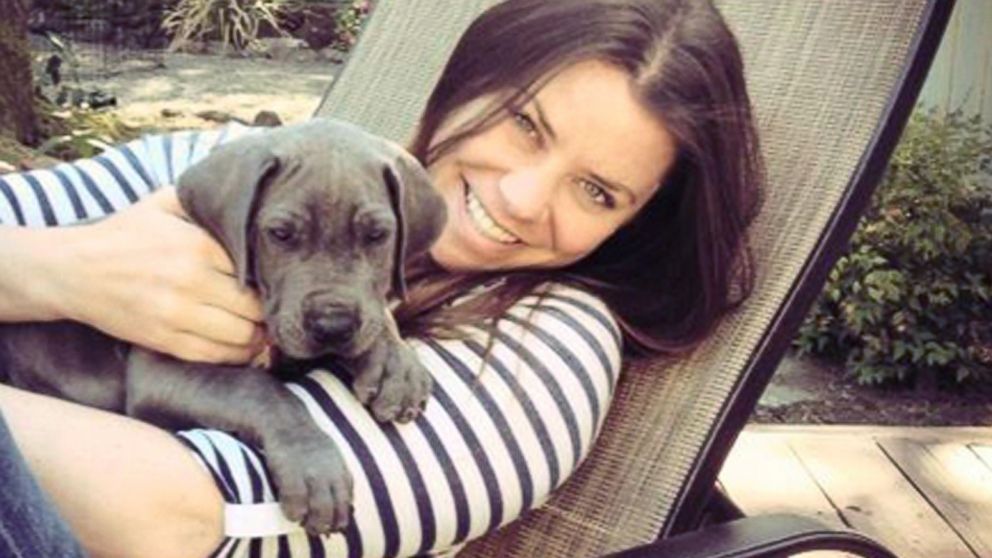"Dig-ni-ty noun: 1. A way of appearing or behaving that suggests seriousness and self-control. 2. The quality of being worthy of honor or respect." Merriam-webster.com
"My glioblastoma is going to kill me, and that's out of my control," Brittany Maynard (People.com)
I often wonder what goes through the mind of a terminally ill cancer patient. Is it fear? Is it a calm contentment? Is it regret? Is it
quit? Maybe it's all of these emotions and many more, simultaneously and in phases. I honestly can't imagine what this state of sickness would be like and I genuinely wish never to receive a terminal diagnosis. Yet, what control have I over the future?
Five days ago, October 6th, People.com published an article, a story gone viral, disclosing to the public the insights of one such terminally ill patient:
http://www.people.com/article/Brittany-Maynard-death-with-dignity-compassion-choices
29-year-old Brittany Maynard possesses a malignant brain tumor, and within her body is a stage 4 brain cancer called glioblastoma. The doctors in April gave her 6 months to live, tops. It's been 5 months. She is literally "facing her death". She told People in this interview, described in the above article, that on November 1 she plans to end her life early, to "go with dignity".
The purpose of the interview was for Maynard to share her thoughts on her experience as a terminal cancer patient, on aided death, and her recent project with the Compassion & Choices organization that will promote and advocate so-called "death-with-dignity" rights and laws to states in the US that currently do not have such laws. The project is given more detail in the above linked article.
Articles like these --
words like these -- do not grant shelter under the storm clouds of our deepest, most somber human emotions. These are the stories that penetrate so deep that they level us to our core. Upon reading of such a dire and inevitable circumstance, we must resort to our most fundamental beliefs about the truth to have any light shed on this unique and frightening moment in a persons life. As I write, let no one be mistaken that I too, among the thousands and millions who have read this article and shared in this story, am rendered defenseless and stricken grey with true sorrow. I can only bless the family and loved ones of Mrs. Maynard, newly wed at the time of her initial diagnosis in January, and give my sincere prayers up to God that she die in peace and live again in glory. I pass on my deepest condolences to her husband Dan Diaz.
As brutal and agonizing a read as it always is, any decision to terminate any life is a serious decision. It must be contemplated seriously and put under a serious microscope, because this is life we're talking about. Once you end a life, you cannot take it back. There are consequences, both direct and indirect, both physical and emotional, both personal and interpersonal. Maynard's decision, whatever it may be with regards to how she passes on, will have an effect on those close to her, and she recognizes this in the article. Therefore, as she has, we should also question her decision to end her life prematurely on the first November day. One has to think: is it right? Does it make a difference when she dies, how she dies, or whether or not she chooses to die? What is the moral decision in this scenario? I believe that we have a real moral obligation to consider this case, or at least to ponder the ethics of euthanasia, because there may be one in your life one day, some day, who finds themselves in a similar predicament as Maynard. What will we say to this person? And what will be our decision if we find ourselves in this predicament? It's a real situation and moral dilemma that cannot swept under the rug because it happens. By examining this situation objectively, I feel we are doing something altogether loving.
Suicide will always be tricky topic. This particular story reminds us of the late
Robin Williams who recently made his own decision to commit such a tragic action. If we were interested enough at the time and remember, there was much justifying the action of Williams because of his bout with depression. The question was posed: was it right? Many said aye knowing the psychological tendencies of depressed persons, who act out of sorts and often irrationally, yet with a mysteriously persistent motive to ease the suffering of others though their actions don't always give that reflection. So suicide, in the case of Robin Williams, was dressed as a certainly tragic but probably sacrificially-motivated deed, that by ending his own internal suffering, having perceived this to alter the well-being of others, he would be ending the suffering of others. Therefore, the act was not an essentially immoral or selfish act. This was popularly argued by reporters and writers, while a western world was given to teary, tranquil silence.
This argument, however, is not applicable to the case of Brittany Maynard, for she consciously and conscientiously makes this decision, to end her life, and further discloses this decision. Her decision has also been approved and encouraged by other independent and presumably sane individuals. She gives no self-diagnosis of depression nor does she express the presence and influence of it in her experience and her decision-making. Now, enough data is not presented for me to say with conclusion whether she is in a class of depression alongside Williams. But I'm inclined towards nay. I believe this distinction between the case of Maynard and Williams is important, because debilitating depression (and other psychological ailments) should be discarded as arguments in this case, and shouldn't factor into our ethical reasoning here. However, if it is adequately demonstrated to me that Brittany Maynard is under the influence of a psychological disorder, then I will revise my approach to this issue.
Maynard told the interviewer that she is
not suicidal, but that she is choosing to go with dignity, on her own terms. It strikes me as making a distinction but with hardly a difference. Suicide is suicide, regardless of the scenario or the method. She is still desiring to kill herself. It's still "opting out". Does that not make her suicidal, I ask? I do not stress this point. The point I would rather choose to dwell on is why she has come to the conclusion that suicide is right. She provides both an emotional and a philosophical reason for believing euthanasia to be ethical, especially in her case.
More and more, she experiences seizures and many other pains derivative of her ailment, surviving on medications from her doctor. She explicitly states that by choosing her death, she is choosing to put herself and those around her through less suffering. But what is ethical here transcends physical and emotional pain, she recognizes. She states that this choice for suicide "is ethical, and it is ethical because it is a choice."
I have disagreements. I disagree with the act she is choosing and her reasons for it. And it's a disagreement worth stating because this is an issue that hits home for many of us and her's are the words that may be the final influence for some of us. I genuinely believe that Maynard is mistaken. Here's why I think so:
Suffering isn't all there is.
Brittany Maynard makes her decision concerning her death on the basis that she will inevitably suffer until her inevitable death, soon-to-come. I get it. No one wants to experience the seizures, the head-aches, the heart-aches, and everything else that comes with stage 4 cancer. Or perhaps I don't get it. I haven't experienced what you, Brittany, have. But I have seen another 29-year-old die of a defect she had borne since her infancy. I have listened to the last breathes of a dying breast-cancer victim. I have seen a man die after a century of living only to spend his final days -- years -- with hardly any sensory ability or physical comfort. So perhaps, suffering isn't quite as foreign as one might presume. Regardless, I believe one's own suffering alone does not make for sound reasoning for taking their own life on their own terms.
I am a Christian. And in my worldview, there is more meaning to life than simply happiness v. suffering. Our experience does not determine our worth nor the value of our living. God has decided that we are worth our suffering and that our lives have such tremendous, intrinsic value, that our temporary suffering is meaningless. There is more at stake than how weighty our pain is. There is one's destiny to consider. There is the lives of others to consider, whether their lives are lived in truth, contentment and love.
Now one may be wondering why I bring my faith into it and I'll tell you why. This issue of aided death, if you want to call it that, is perspectival in nature. I'm convinced that ethics, fundamentally, is a philosophical question. The meaning of life, also, is a philosophical question. Both ideas,
morality and
meaning, are connected at the hip. Without there being any real meaning to one's life and existence, ethical questions become redundant and void of pertinence and value. So how can I not bring my faith into it? This is an issue that everyone approaches from the angle of their religious, philosophical worldview whether it be agnosticism, Christianity, Islam or atheism. This is a dilemma that touches the very cores of our beliefs. Therefore, I can only give my opinion derivative of my deeply routed, deeply Christian religious convictions.
As a Christian, I believe that God has invested into life tremendous value and purpose. Therefore, who are we to say when our time is up or when our purpose has been fulfilled? Who are we to press the 'Game Over' button? Life-and-death decisions should never be based on the certainty of our suffering. Any decision based on our emotions is a selfish, subjective, and individualistic decision. That you have a choice in the matter does not make it right or ethical. That simply does not follow.
What about the suffering of her family? What about those who must watch Brittany endure such agonizing pain? What about them? If all that there is to one's final days is pain, then would it not be better to spare the family's pain by ending the life? These are compelling questions. I have a few questions of my own however. Along the same lines as what has previously been discussed, does the causation of suffering (especially when it is due to your own suffering) automatically make the very act of living unethical? Or, perhaps, does it make dying ethical? Does causing happiness and suffering alone construct an objective moral code? Also, at what point is one's life become so filled with suffering that it becomes more worthwhile to die? At what point does another's suffering override and determine your own life's meaning and value? Is it possible that your meaning and your character can positively affect another in spite of the other's suffering? Can there not be meaning and positive transformation and outcomes in the midst of suffering?
If moral determinations are predicated solely on suffering, be it physical or emotional, personal or interpersonal, then the individual posits a very flat, meaningless, colorless world without any real, intrinsic worth aside from the culmination of flesh, bones and the chemical reactions that materialize thought.
Was there ever any dignity in human life, at all?
You don't know when you're going to die.
Consider this. How has the circumstance of the individual changed from one living the average 75-95 year life-span to one predicted die at 29? All that's changed is a) probability of dying sooner rather than later, and b) the magnitude of suffering to be experienced near death. Do either of these changes give good, objective reasons for claiming your own life? Point b) has been addressed as we know. Point a), however, provides another factor that we as questioners must consider.
What happens when death is near-inevitable? What happens when death is so certain and so soon that it wouldn't make a difference whether you end your life "early"? Well, I find that there are flaws and wrong assumptions made in this line of thought.
First of all, death is certain for all of us, isn't it? Does the chronology grant one any exclusive rights to aided death? If yes, on what basis?
Second of all, how can one know for certain
when they will die? Some are guaranteed death in months time, only to live on for years. Some believe they will live an average life only to be abruptly hit by a bus, stricken with AIDS, or die in there sleep for some unknown cause. Is the future ever truly known? To say that we will die at such and such a time is to claim possession of all the data necessary to come to a specific and definite, futuristic conclusion. Isn't that playing God? Isn't the individual, then, claiming infinite knowledge? Unless we are God, we should set the odds of survival just above zero. If the odds are just above zero, should we not then act and live with the expectation and attitude that we will live? This is why I don't take a doctor's words with such absolute confidence, because they are not gods.
With these points in mind, I cannot really see what is fundamentally different in the case of Brittany Maynard from that of a healthy individual that would make aided death dignified, justified and truly right.
Personal thoughts on her activism.
I also find that it is odd to spend what is likely your last weeks promoting and advocating euthanasia. Personally, if I was to fight for any cause, wouldn't I invest my remaining energy and time into helping researchers find a cure or more effective cancer-treatment methods? Wouldn't I want to help other cancer victims fight rather than... well, quit? I find it odd. I find that the influential and heart-moving activism of Maynard to promote aided-death reduces life of its worth (I am repeating myself) when life is made joyful and fulfilling when we fight for it, even in this situation.
If cures and treatment methods are a star in the dark sky, to be attained only the unforeseeable and distant future, then why not help mankind get a little closer to reaching it? Or if cures and treatments methods are absolutely unattainable, then why not strive to assist research and access to better pain-reduction methods other than termination? Why not invest your remaining life in a cause that will benefit those who still have potential for a long life? Why not invest your remaining life to helping orphans or the poor or minorities or...? Why invest what is left with your life in helping others die?
It is my Christian conviction that life has meaning independent of our suffering. I am convinced that at whatever stage our cancer is at, whatever the magnitude of our suffering is, we ought not to claim our own life because it is not a right given by God. I am convinced that the motives of Brittany Maynard, from her own words, are entirely too subjective and individualistic to be an objective predication for her actions. Therefore, I cannot agree that her decision, on this matter of life and death, is right. It is unethical, contrary to her claims.
I haven't a grain of spite within me towards Maynard. I haven't an ounce of ill-will towards her, nor any desire that she suffer. Yet, I am convinced that as long as she lives, her life has a distinct, sacred purpose and that she hasn't the right nor the infinite knowledge to say when her purpose has run out, especially for emotional purposes. Her decision is based on an emotional charge which I can hardly blame her for. But that doesn't make it right.
My hope, for Brittany, is that her final days be spent under the blessed light of the gospel of Christ, that she would live meaningfully for an ethical and pertinent cause. I pray that she would know and abide in the truth and find the joy in it. I hope that she would live in undying love and devotion to her family and loved ones, that she be remembered and loved well after succumbing. Above all I pray that she will find the joy and hope that transcends all earthly pain and pleasure and gives men and women, whatever condition they're in, a reason to live and fight for the living. I genuinely hope she changes her mind.










